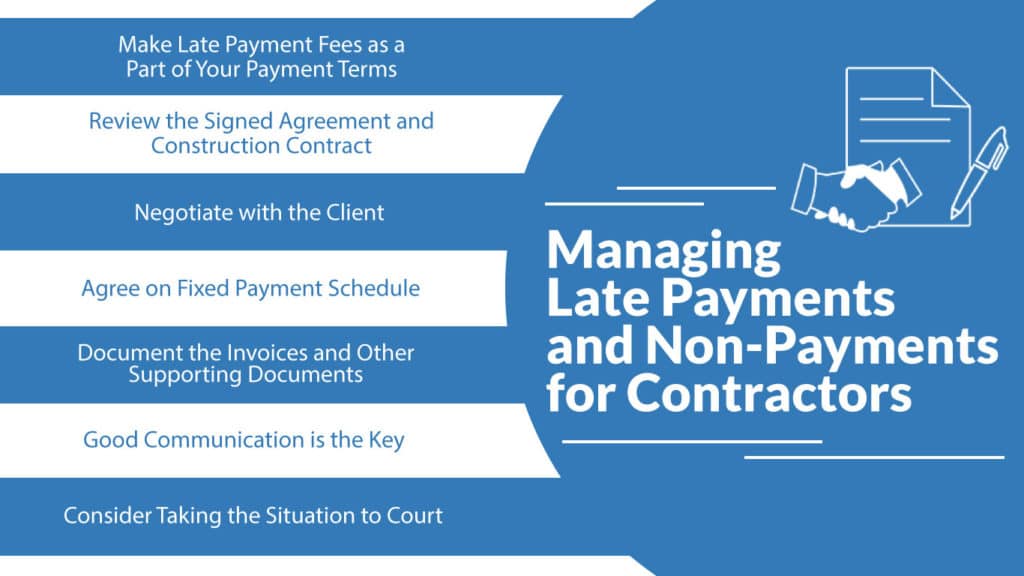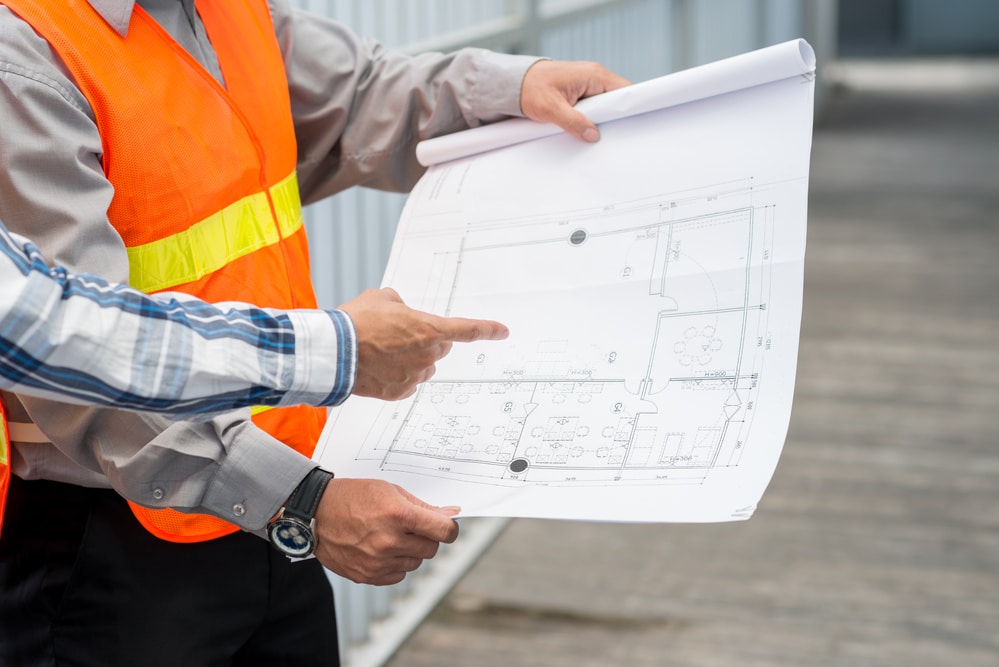Let’s face it.
Builders seldom get the payment for their work at the right time with the exact amount. The harsh reality is that contractors seem like at the bottom of the payment pile. Late payments and unpaid invoices are huge headaches for numerous small construction businesses and even for most independent contractors in many parts of the world.
Cash flow is king! The payment for your construction work needs to be on time because it is not just a mere sign of completion. Money is the bloodline of your business, so it runs your whole operation. Hence, when clients frequently miss out the due date for the payment, your contractor business might be compromised.
Just a reminder, if somebody forgets – contractors have the legal right to claim their payment for the work they executed.
“Payment is the gratitude our builders get for their hard work.”
Effects of late payments and non-payments
Start-up or small businesses have high chances of bankruptcy if the company fails to establish valuable and useful payment management. Moreover, slow-paying clients can affect the way you pay your personnel. As you are closely depending on your clients, the ability of you to pay your staff on time might be reduced.
Maintaining and improving your building equipment and other tools might decelerate. Considering these are the significant aspects of your business, your plan of taking your construction business one step higher might slow down as well.
For the project aspects, these payment issues can seriously hamper clients’ and contractors’ ability to perform and accomplish work on a schedule based on the given budget. Sometimes the building project can put at risk too and productivity becomes sluggish. With the given facts, we can say that payment is a joint responsibility.
This includes scenarios such as if a builder fails to notify the client and gives the billing statement, or if a client neglects and refuses to pay. Therefore, the payment system depends clearly on the client-builder relationship. So the big question is… how to manage late payments and non-payments for contractors?
Managing late payments and non-payments for contractors
Getting on top of cash flow problems can help minimise variations in revenues and expenditures, whilst letting you have time to plan for further business growth. If you feel like your client is giving you hard time with payments, here are the ways to deal with payment issues.
1. Make late payment fees as a part of your payment terms
One way to secure the payment for your work is to include a late payment fee in your building contract. You better make sure that you state this term at the beginning of the agreement process. Some include at least 2% penalty if one fails to pay within 30 calendar days, or 3 % for 60 days and so on. It is actually depending on you, but the client should also agree with it too.
Read also: GenieBelt and APROPLAN merge to create a new force in construction technology
To be honest, talking about payment terms is a crucial and sensitive topic for construction transactions. So discussing your terms might be somewhat difficult for you, but know that you have the right to get paid on time. Bear in mind your legal rights and the impact of unsecured payment terms on your business.
2. Review the signed agreement and construction contract
Don’t settle with a simple handshake. Use construction contracts and other legal documents if you are planning to get a new project opportunity. A contract makes all your builder or contractor legal rights secured. It helps you in so many ways most especially with the payment.
However, if you already executed half of the work or completed the whole project, your best step is to review the construction contract and other agreement papers that you and the client have signed before the commencement of the construction. By doing this, you will be enlightened about your agreement and you can use those as evidence of client’s contract violations.
3. Negotiate with the client
Discuss your concerns with the client. This is the easiest and effective way to deal with late and non-payment issues for contractors. Asked the reasons why you are still not receiving the amount in a very nice way. Don’t afraid to speak up if you think your client is about to rip you off.

You can also suggest resolutions as to how these debts will be cleared and settled, but always put interest on it. Propose something that could benefit the contractual parties. At this time, you would be irritated but you need to think wisely the best method to resolve the issue. Or else you will get nothing from your work.
4. Agree on a fixed payment schedule
The main reason for setting a payment schedule is to have an actual date for claiming and releasing the payment. Construction is a complex process. It includes hard work, investment, and many emotions for the client and the builder themselves. It is really exhausting so having a specific date for payment makes the process less painful.
You better add this on your construction contract hence contractual parties will be informed. Know that setting a payment schedule is not for you to decide but you can suggest. It must be agreed by both sides and sealed with a signature. If you do this, you will get to manage your cash flow.
5. Document the invoices and other supporting documents
Documentation is another way to be secured and protected. Keeping a copy of all your transaction history can be the cure for your huge headaches caused by payment troubles.
So when disputes arise, you would have something to show and remind to your client on the disputed amount. It can also help you keep track of how much should a client still pay you. It keeps you organized, and you get easily see if the client starts to pay you late.
6. Good communication is the key
Construction is a temporary endeavour. You need to work with people you just have met. Having a clear transaction and good communication are always the best ways. Do not hesitate to ask the contractor questions that you are not familiar with. Setting your expectations on their work might also prevent misunderstandings.
However, if you are experiencing building disputes now with your project, do not discourage. There are countless building dispute lawyers to help you with dispute resolution.
7. Consider taking the situation to court
Considering taking legal action is just a waste of money is truly disappointing. You might think that you have no money as of the moment to pay a lawyer but if you would let a solicitor assist you with getting your situation, you could even get the exact payment plus the compensation for the troubles the clients have put on you.
Find here: Punch list for construction – The ultimate guide
Don’t hesitate to take your situation to court. If you have gone through with negotiation but nothing happened, it is time to ask for a law expert to deal with it. A construction lawyer will represent you in court after you file a lawsuit against the client. He will help you understand your rights to Security of Payments and the legal process to enforce them. Builders and contractors deserve to get paid for their hard work.
Ways construction software can help to deal with payments
Construction is not as easy as it sounds. As a lawyer working in the construction industry, I must say we need to take advantage of the opportunity the technology is offering to us. Construction software is a great tool for a more collaborative and precise building process. Most especially, it helps you to get paid on time as using MS Word is simply not enough.
Using construction software is time efficient. You just have to click some buttons and your employees’ work hours with the total amount to be paid will appear. Construction people are so busy doing the actual work to get a paper and document everything, right? Work reporting needs to be accessible and quick so productivity does not get affected.

Using construction software helps you to monitor your contractors’ work. Sometimes, managing your people is hard. By utilising the features of the software, you will know if your people are working on time and the work they do in a particular time. In short, it helps a lot in the documentation and releasing of payments.
Using construction software can give the clients assurance. Having your builder or contractors use the software has a huge effect on the clients’ impression. This gives them a guarantee of a quality construction work. Why? Because you are using a well-planned system for your project. It means every aspect of the work is under control through a good management system. So the tendency of failures is minimised.
No matter how complex the construction is, we always go back to imagining the result because that is what matters. Whether you are building a new house, apartment, or huge buildings, we should always use the basic as the foundation. Establishing well-planned payment management hence having troubles getting paid can be prevented.
About the author: John Dela Cruz is the Principal Construction Lawyer of Contracts Specialist, Founder, and CEO of Small Builders Construction Software based in Sydney, Australia, and an industry influencer. He has been helping multiple homeowners, builders, and other tradesmen across the field for almost 10 years. He holds several industry management roles including Divisional President and Councillor at Master Builders Association NSW.
LinkedIn: https://au.linkedin.com/in/johndelacruzsydney?trk=author_mini-profile_title
Contracts Specialist: https://www.contractsspecialist.com.au/




